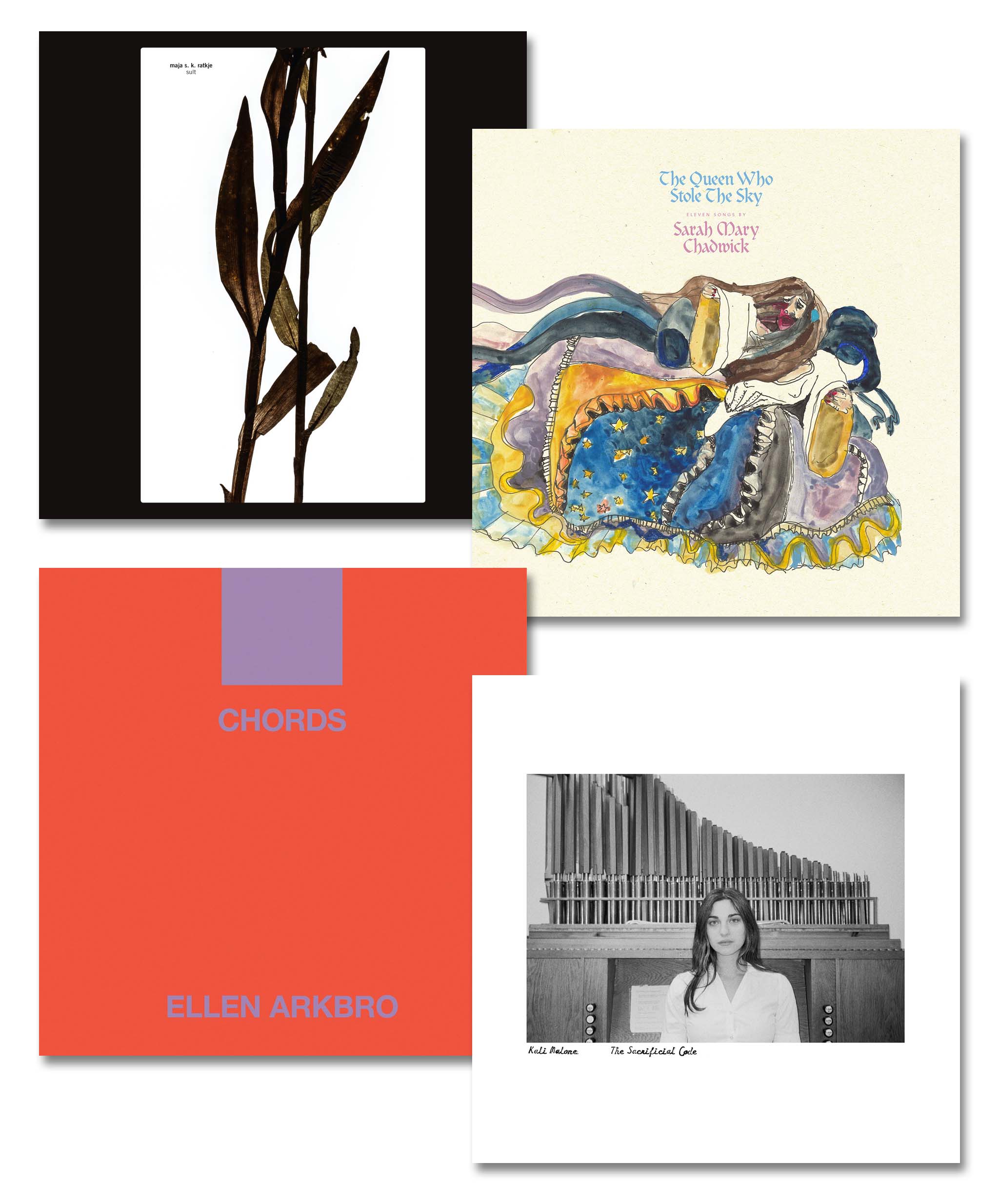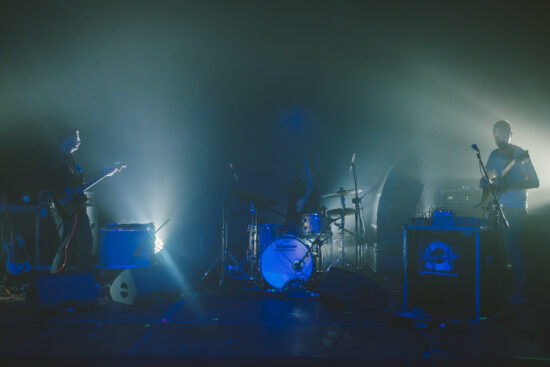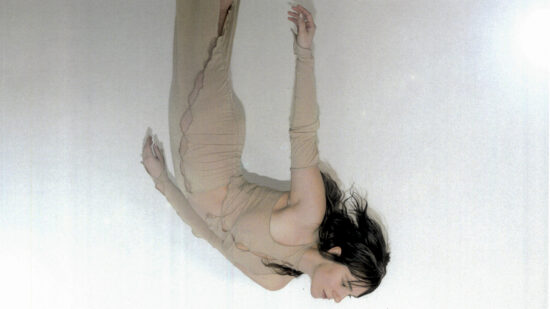Four artists representing four different musical worlds are breathing new life into organ music. Ellen Arkbro keeps developing new conceptual ideas for using this instrument, Maja Ratkje adds additional sounds to it, Sarah Mary Chadwick uses it as an accompaniment to her songs and Kali Malone creates long, meditative drones, putting the ideas of deep listening into practice.
Translation: Aleksandra Szkudłapska
The sound of the organ invariably transports me back to my childhood. Various church ceremonies – whether sad or happy – were celebrated to the accompaniment of these mighty, dignified sounds coming from the back of the temple. As far as I remember, organists never played any complex melodies, mostly using the instrument as background for the psalms they sang. I have also thought of the organ as a certain epitome of archaicity: because of its antique sound, the lack of any ideas for putting it to innovative use and the fact it’s most often played by men. And yet it turns out the organ can still live and breathe, its image rejuvenated by four women who have recently released four very different, but equally intriguing albums. Hence the above title – referring to September Collective’s record Always Breathing Monster from a few years back, which also took a new and different organ sound formula as its point of departure. Organ music really is in great shape.
The events may have taken a different turn had it not been for Ellen Arkbro’s For organ and brass, released two years ago and written for a 400-year-old organ found in the German town of Tangermünde. In this conceptual display of meditative minimalism and drone sonority of the organ combined with brass instruments (horn, tuba and trombone), the key role was played by minute chord changes and subtle additions of overlapping layers of instruments, enhancing the major scale of the sound. This year, the Swedish composer is back with Chords, where the organ fills just one side of the album (the other belongs to the guitar). Again, this is minimalism at its most lofty, as Arkbro builds a resonating, mighty drone sound, which gradually becomes fractioned into separate pieces. The tone is less diverse here – the Swedish composer seems more focused on the texture of the sound. Emotional rapture has been replaced with an immersion in microtonality – Arkbro often works with tonal frequency, something she demonstrated amazingly at her concert in Gdańsk (where she turned the venue into a resonance box, packed full with sound). The sounds are sharper, the drones bend over time, they’re also more coarse. The same goes for side B: “Chords for guitar” are individual strokes on the instrument’s strings, but – paradoxically – it’s hard to resist the impression that one is actually listening to an electronic sound. Chords, much more than her predecessor, is an experiment, a sonic environment subject to distortions – an intriguing concept, but for me personally, it’s For organ and brass that remains Arkbro’s timeless masterpiece.
Sarah Mary Chadwick’s new album may also not have materialised, had it not been for a specific organ: the 147-year-old instrument from Melbourne’s Town Hall. Chadwick has so far explored the language of rock music, usually spinning her romantic, moving songs with the backing of a full band. The Queen Who Stole The Sky transposes her previous work into organ music. This isn’t just a synthesis – the artist builds simple, yet evocative pieces, and in terms of composition, brilliantly nuances high and bass tones of the powerful monster she’s playing. Perhaps Chadwick could consider celebrating a peculiar mass: her wailing voice, which brilliantly counterpoints the instrument, sounds lyrical, poignant and dramatic at the same time. She is great at describing the trials and tribulations of love as well as her moving reckonings with the past (I never had a man around to love me when I was younger / And that’s fine / But there’s no amount of love that could fill me / So I keep searching through the line / Who’s next in line? in “Next in Line”). These songs, though monumental in terms of sound and overwhelming in terms of their subject matter, nevertheless embody a certain lightness. They are touching; although the dominant theme is one of immense pessimism, they emanate beauty (No matter how much joy there is / Trust me, I spin in it to sorrow in “On the make”). Fortunately, although I can imagine some people disagreeing, Chadwick does not overly sentimentalise her depressive words (Sometimes there will be tears / I’ll have good years and bad years in the title piece). The album is powerful and very lyrical. Whenever I listen to The Queen Who Stole The Sky, I am invariably drawn in and moved. An intriguing, intimate story.
Maja Ratkje – whose musical interests span improvisation, sound installations and voice-oriented projects – has made a record situated somewhere between a concept album and a song formula. Sult is based on music composed for a ballet of the same title. While the organ is the main instrument, it is not the only one used: the Norwegian artist expanded it with added metal and PVC tubes, guitar and bass strings and percussion elements. And she had to learn to play all that: with both her hands, her leg – and sing to boot. Luckily, the theory and concept do not obscure the rest of the music. If the first two compositions are dignified and atmospheric, the third – and longest – Den Sprættende Bevægelse Min Fot Gjør Hver Gang Pulsen Slår is a developing, trance piece with vocals, organ repetitions and an entire ensemble of buzzing instruments in the background. And it gets more folky and song-like: Sayago – En Sådan Glidende Lyd is a charming ballad accompanied by the organ (albeit the sound is not as mighty as with the two aforementioned artists) and terrifying, whining background noises. Ratkje hides an entire wardrobe filled with music underneath her melodies, a peculiar foley room, like those used by film acousticians. She sometimes gives it a post-Reich form, occasionally romances with film scores, but more often creates catchy folk and vocal ballads. These are the moments when it’s really easy to forget that these pieces were composed as a ballet score, because they work amazingly well as an autonomous album.
There is also a fourth perspective on the organ. On her latest record, Kali Malone builds the largest monument, mostly because of its duration (of almost two hours). She follows some of the same paths as the aforementioned artists – sharing Arkbro’s conceptualism of drone, meditative forms and Ratje and Chadwick’s melodiousness and ensuing melancholy – but her focus is on gradually developing drones and Pauline Oliveros’ concept of deep listening. This is not her first adventure with the organ: last year she released Organ Dirges 2016-2017, but The Sacrificial Code offers an acute follow-up to these ideas: three different recording sessions, three different instruments and three spaces (whose acoustics is, however, largely reduced). The trance nature of Malone’s minimalism is key here: her meditative, sparse, single chords, occasionally nuanced by different notes. Each delicate change is perceptible, the movement resonates in the air and in the texture of the sound generated by the instrument, underlining its deep sound. The atmospheric, slightly funerary ambience is contagious. Minor sounds, stretched over time, draw the attention to the instrument’s texture, drawing it into its complex structure or even stopping the passing of time. Instead of launching an onslaught on your ears, the organ sound is smouldering: Malone plays the instrument like a true purist, preferring the human factor to concept. The Sacrificial Code is like a set of film close-ups in slow motion: when listening, one focuses on the passing details, which I take attentively, fully focused; they are eternally captivating.
Ellen Arkbro, Chords, Subtext
LISTEN: 🎶Spotify, 🎶Tidal, 🎶Deezer, 🎶Apple Music
Maja Ratkje, Sult, Rune Grammofon
LISTEN: 🎶Spotify, 🎶Tidal, 🎶Deezer, 🎶Apple Music
Sarah Mary Chadwick, The Queen Who Stole The Sky, Heavy Machinery Records
LISTEN: 🎶Spotify, 🎶Tidal, 🎶Deezer, 🎶Apple Music
Kali Malone, The Sacrificial Code, iDEAL Recordings
LISTEN: 🎶Spotify, 🎶Tidal, 🎶Deezer, 🎶Apple Music




